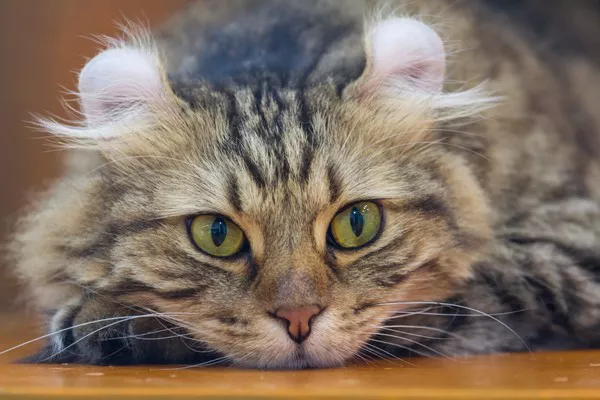As pet owners, we often find joy in pampering our feline companions with treats and indulgences, and the question of whether raw eggs are a safe addition to a cat‘s diet has likely crossed the minds of many. The allure of sharing a wholesome and natural food item with our cats is understandable, but when it comes to raw eggs, a closer examination is necessary to determine their impact on feline health.
Understanding a Cat’s Dietary Needs
Before delving into the specifics of raw eggs, it’s crucial to comprehend the dietary requirements of cats. Cats are obligate carnivores, which means their nutritional needs are primarily met through a diet rich in animal-based proteins. They have a unique set of dietary needs that include essential amino acids, such as taurine, which is crucial for their overall well-being.
Commercial cat food is meticulously formulated to meet these specific nutritional requirements, providing a balance of proteins, fats, vitamins, and minerals necessary for a cat’s optimal health. While treats and occasional indulgences can be a delightful addition to a cat’s routine, it’s essential to ensure that any additions align with their dietary needs.
The Appeal of Raw Eggs
Raw eggs have been lauded for their nutritional value in human diets, being a rich source of proteins, vitamins, and minerals. This has led some cat owners to consider incorporating raw eggs into their pets’ diets, assuming that the same nutritional benefits would apply.
Proponents argue that raw eggs provide a concentrated source of easily digestible proteins, biotin (a B-vitamin), and other nutrients that could be beneficial for a cat’s coat and overall health. However, the debate surrounding the safety of raw eggs for cats raises important considerations.
Potential Risks of Raw Eggs for Cats
While raw eggs may offer certain nutritional benefits, they also pose potential risks that cat owners should be aware of:
1. Bacterial Contamination:
Raw eggs can harbor bacteria such as Salmonella and E. coli, which can lead to severe gastrointestinal issues in cats. Cats, like humans, can be susceptible to foodborne illnesses, and the risk of bacterial contamination increases with the consumption of raw or undercooked eggs.
2. Biotin Deficiency:
Raw egg whites contain avidin, a protein that binds to biotin, a B-vitamin essential for a cat’s skin and coat health. Excessive consumption of raw egg whites could potentially lead to a biotin deficiency in cats, affecting their skin and coat quality.
3. Digestibility Concerns:
The digestibility of raw eggs for cats is a subject of debate. While proponents argue that cats in the wild may consume raw eggs as part of their diet, domesticated cats may not possess the same digestive adaptations. Raw eggs might be challenging for some cats to digest, leading to potential digestive upset.
4. Interference with Balanced Nutrition:
Cats rely on a balanced diet to meet their specific nutritional needs. Adding raw eggs to their diet without careful consideration can upset this balance, potentially leading to nutritional imbalances that may impact their overall health.
Safe Ways to Offer Eggs to Cats
If you’re considering incorporating eggs into your cat’s diet, there are safer alternatives to raw eggs that address some of the concerns mentioned:
1. Cooked Eggs:
Cooking eggs eliminates the risk of bacterial contamination. Scrambled or boiled eggs, without added seasonings, can be a safe and nutritious treat for cats. Ensure that the eggs are fully cooked to avoid any potential health risks.
2. Moderation is Key:
Regardless of whether eggs are raw or cooked, moderation is crucial. Treats should constitute no more than 10% of a cat’s daily caloric intake to avoid upsetting the nutritional balance provided by their regular cat food.
3. Consult with a Veterinarian:
Before introducing any new food items into a cat’s diet, it’s advisable to consult with a veterinarian. A veterinarian can provide personalized advice based on the cat’s age, health status, and dietary requirements.
4. Monitor for Allergies or Sensitivities:
Cats, like humans, can have allergies or sensitivities to certain foods. When introducing eggs or any new treats, monitor your cat for any signs of allergies or digestive upset. If adverse reactions occur, discontinue the treat and seek veterinary advice.
See Also: Can Cats Have Eggs? Everything You Need To Know
Conclusion
In the grand debate of whether raw eggs are bad for cats, the answer lies in careful consideration and a nuanced understanding of feline nutrition. While raw eggs offer potential benefits, the associated risks, including bacterial contamination and the potential for nutrient imbalances, should not be overlooked.
Cooked eggs, offered in moderation, can provide a safe and nutritious treat for cats, addressing some of the concerns associated with raw eggs. As responsible pet owners, it’s our duty to prioritize our cats’ health and well-being, making informed decisions about their diet.
Ultimately, consulting with a veterinarian remains the best course of action when contemplating dietary changes for your feline friend. With the right guidance, you can ensure that any treats, including eggs, contribute positively to your cat’s overall health and happiness.



























